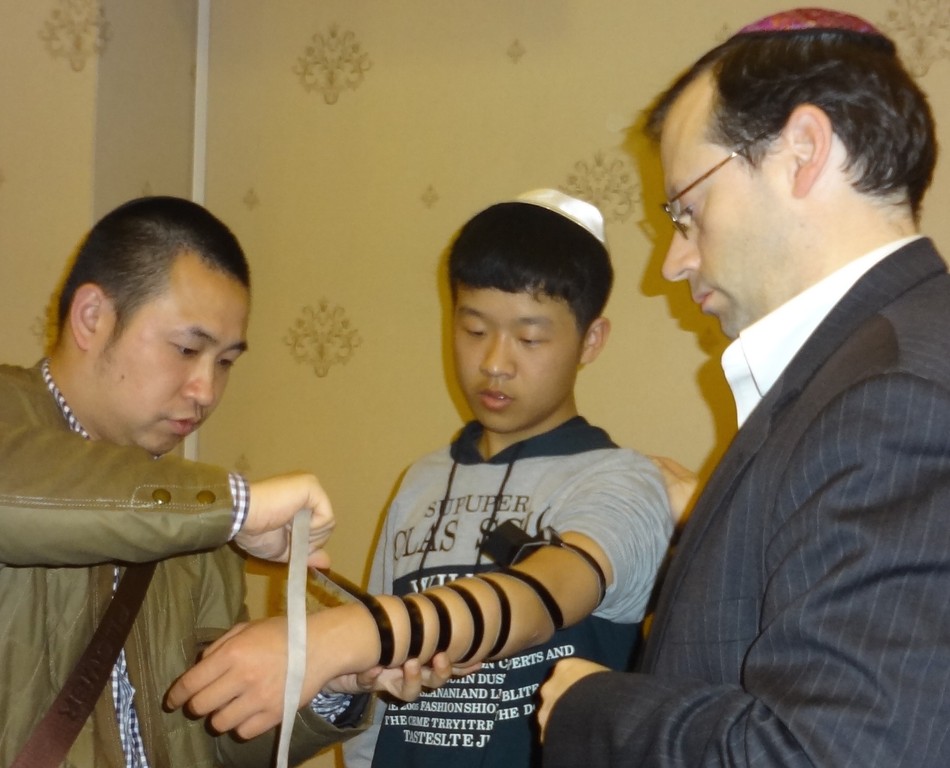First Chinese Seder
Nearly 100 members of the ancient Jewish community of Kaifeng, China, are expected to attend a first-of-its-kind traditional Passover Seder next Monday.
The Seder, sponsored by the Jerusalem-based Shavei Israel, will be conducted by 28-year-old Tzuri (Heng) Shi, who made aliyah to Israel from Kaifeng a few years ago with the help of Shavei Israel and completed his formal return to Judaism last year.
As part of the preparation for the upcoming Seder, Tzuri was sent to Kaifeng by the Shavei Israel organization with all of the traditional Passover items including kosher matzah packages from Israel, Kosher for Passover wine, traditional Charoset and horseradish, as well as Passover Haggadahs. The Haggadahs were prepared especially in Hebrew and Chinese.
“We are proud and excited to organize this historic event,” said Shavei Israel Chairman and Founder Michael Freund. “Kaifeng’s Jewish descendants are a living link between China and the Jewish people, and it is very moving to see the remnants of this community returning to their Jewish roots as they prepare for Passover,” he added.
Scholars believe the first Jews settled in Kaifeng, which was one of China’s imperial capitals, during the 8th or 9th Century. They are said to have been Sephardic Jewish merchants from Persia or Iraq who made their way eastward along the Silk Route and established themselves in the city with the blessing of the Chinese emperor.
Kaifeng also houses China’s oldest known synagogue. In 1163, Kaifeng’s Jews built a large and beautiful synagogue, which was subsequently renovated and rebuilt on numerous occasions throughout the centuries. At its peak, during the Ming Dynasty (1368-1644), the Kaifeng Jewish community reached its height of 5,000 people with rabbis, synagogues and Jewish institutions. But widespread intermarriage and assimilation, as well as the death of the community’s last rabbi two centuries ago, brought about its demise by the middle of the 19th century.
The community was then forced to sell the synagogue and Torah scrolls, according to Shavei Israel’s website.

 47.0°,
Mostly Cloudy
47.0°,
Mostly Cloudy 




